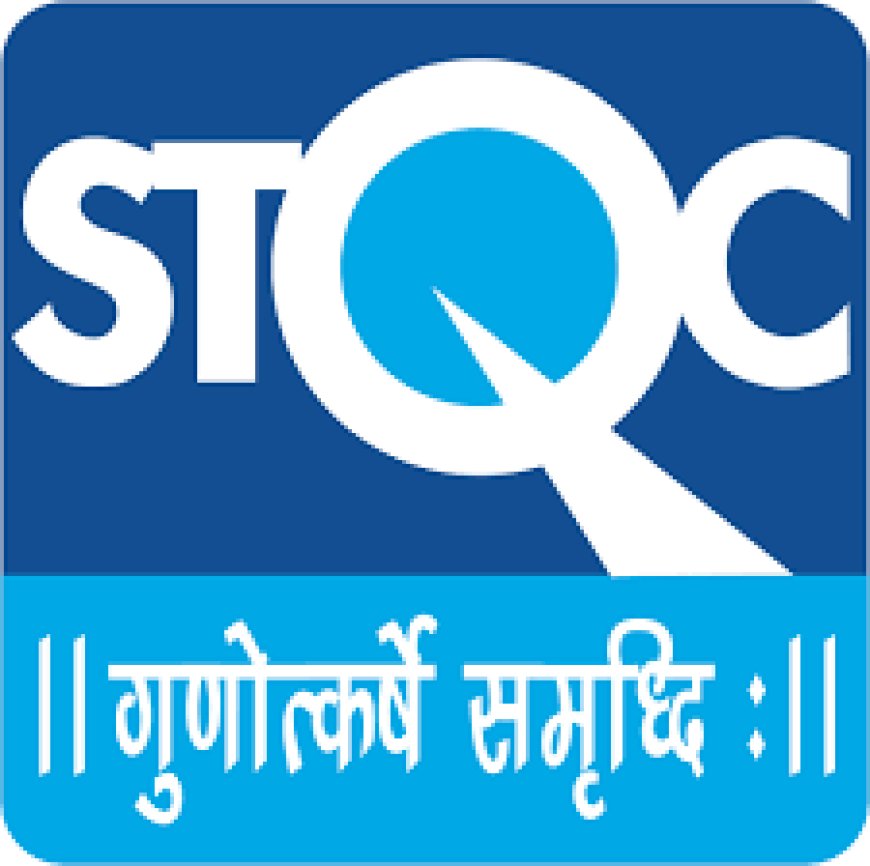STQC Certification Agent

In today’s fast-evolving technological landscape, maintaining high standards for electronic products, IT services, and e-governance applications is essential to ensure efficiency, security, and reliability. One of the leading entities responsible for quality assurance in India is the Standardization Testing and Quality Certification (STQC) Directorate. Operating under the Ministry of Electronics and Information Technology (MeitY), STQC plays a vital role in certifying products, processes, and systems to meet stringent national and international standards. A key figure in facilitating these certifications is the STQC Certification Agent, whose role, responsibilities, and expertise are pivotal to upholding quality and security benchmarks.
Understanding STQC and Its Importance
The STQC Directorate was established to provide quality assurance services in the field of electronics and IT. It offers a broad spectrum of services, including testing, calibration, IT security audits, and quality assurance certification. The primary objective of STQC is to ensure that products and services meet predefined standards and operate safely and efficiently. These certifications are particularly critical for government projects, financial services, and industries requiring stringent compliance.
Role of an STQC Certification Agent
An STQC Certification Agent is a certified professional authorized to facilitate the process of acquiring STQC certifications for organizations. These agents act as intermediaries between the applicant organization and the STQC Directorate, ensuring that all procedures, documentation, and compliance measures are properly followed.
Key Responsibilities:
-
Guidance and Consultation: STQC Certification Agents help organizations understand the certification process, including applicable standards, documentation requirements, and compliance strategies.
-
Pre-Assessment: They conduct preliminary assessments to identify potential gaps in processes or systems that may hinder certification.
-
Documentation Support: The agents assist in preparing and organizing necessary documentation required for certification applications.
-
Audit Coordination: They facilitate internal audits and liaise with STQC auditors to ensure smooth certification evaluations.
-
Post-Certification Support: After certification, agents continue to provide guidance on maintaining compliance and managing surveillance audits to retain certification status.
Importance of STQC Certification
Obtaining an STQC certification offers numerous benefits for organizations:
-
Enhanced Credibility: STQC certification serves as a testament to an organization’s commitment to quality, security, and compliance.
-
Market Access: Many government tenders and projects require vendors to have specific STQC certifications, making them essential for market eligibility.
-
Customer Confidence: Certified organizations often enjoy greater trust and confidence from clients and stakeholders.
-
Regulatory Compliance: Certification ensures adherence to legal and regulatory requirements, reducing the risk of penalties and legal issues.
-
Improved Operational Efficiency: The certification process often highlights areas for improvement, leading to more streamlined operations and better resource management.
Types of STQC Certifications
STQC Certification Agents guide organizations through various certification processes, depending on their specific needs and industry requirements:
-
IT Product Certification: Ensures that hardware and software products meet performance, security, and interoperability standards.
-
Quality Management System (QMS) Certification: Verifies that an organization’s management system complies with internationally recognized standards like ISO 9001.
-
Information Security Management System (ISMS) Certification: Focuses on maintaining the confidentiality, integrity, and availability of information, often aligned with ISO/IEC 27001.
-
Website Quality Certification: Ensures that government and private sector websites meet standards for security, usability, and accessibility.
-
E-Governance Project Certification: Assesses and certifies government e-governance initiatives to ensure they meet defined quality and security parameters.
Skills and Competencies of an STQC Certification Agent
To perform their duties effectively, STQC Certification Agents must possess a specific set of skills and competencies:
-
Knowledge of Standards: Comprehensive understanding of national and international standards such as ISO/IEC 27001, ISO 9001, and other relevant frameworks.
-
Technical Expertise: Proficiency in IT systems, cybersecurity measures, and quality management principles.
-
Analytical Skills: Ability to assess organizational processes, identify gaps, and recommend corrective actions.
-
Communication Skills: Clear and effective communication to guide client organizations through complex certification procedures.
-
Project Management: Capability to manage multiple certification projects simultaneously, ensuring timely completion.
The Certification Process
The journey to obtaining an STQC certification involves several stages:
-
Application Submission: Organizations submit an application along with relevant documents detailing their processes and systems.
-
Pre-Assessment: An initial review is conducted to identify gaps and areas for improvement.
-
Audit and Evaluation: STQC auditors evaluate the organization’s systems, products, or services against predefined standards.
-
Certification Decision: Based on audit findings, STQC either awards the certification or outlines corrective actions required for compliance.
-
Surveillance Audits: Periodic audits are conducted post-certification to ensure continued compliance.
Challenges Faced by STQC Certification Agents
Despite their expertise, STQC Certification Agents often encounter challenges during the certification process:
-
Complex Regulatory Requirements: Navigating evolving regulatory landscapes can be challenging.
-
Resistance to Change: Organizations may be resistant to modifying existing processes to meet certification standards.
-
Resource Constraints: Limited resources and budget constraints can hinder the timely implementation of corrective actions.
-
Rapid Technological Advancements: Keeping up with emerging technologies and associated compliance requirements is a continual challenge.
Future Prospects for STQC Certification Agents
With the growing emphasis on data security, privacy, and e-governance, the demand for STQC certifications and skilled certification agents is set to rise. Emerging trends such as cloud computing, artificial intelligence, and the Internet of Things (IoT) will further drive the need for robust quality assurance and compliance frameworks.
Organizations seeking to gain a competitive edge must prioritize STQC certifications to ensure they meet the highest standards of quality and security. As a result, STQC Certification Agents will continue to play a critical role in guiding and supporting these organizations in their certification journeys.
Conclusion
The STQC Certification Agent is an indispensable partner for organizations aiming to achieve and maintain STQC certifications. Their expertise, guidance, and support ensure that companies can navigate the complex certification landscape efficiently and effectively. By fostering a culture of quality and compliance, these agents contribute significantly to the broader goal of establishing a secure and reliable IT ecosystem in India. As technology continues to advance, the role of STQC Certification Agents will remain crucial in upholding the highest standards of excellence in the industry
What's Your Reaction?



























